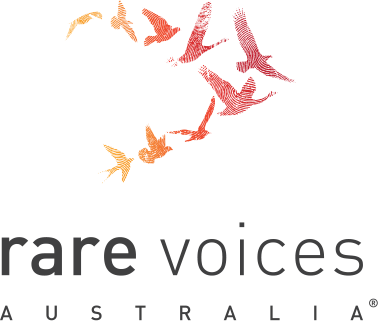Developmental anomalies
Aicardi Syndrome
IMPORTANT INFORMATION
The information on the Rare Awareness Rare Education (RARE) Portal is intended for educational purposes only and does not replace professional advice.
Rare diseases typically display a high level of symptom complexity and variability. Individuals diagnosed with the same rare disease may be impacted differently and each person’s experience is unique. Please seek support from qualified healthcare professionals to learn more about the most suitable care and support options for you.
For more information on this rare disease, please refer to Genetic and Rare Diseases (GARD) Information Center – Aicardi Syndrome1 and Orphanet: Aicardi syndrome.2
If you are aware of any additional information that may benefit stakeholders with an interest in this page, or if you notice any broken links or inaccurate information, please let us know via the Contribute page.
Quick Page Search:
Emergency Management | Clinical Care Guidelines | Synonyms | Summary | Personal Stories | Symptoms | Cause/Inheritance | Diagnosis | Treatment | Clinical Care | Research | Rare Disease Organisation(s) | Support Services/Resources | Mental Health | Other | References
Emergency Management
There may be special considerations for the emergency management of individuals living with Aicardi syndrome presenting to emergency departments.
Clinical Care Guidelines
Clinical Care Guidelines for Aicardi syndrome are yet to be developed in Australia.
Synonyms
Agenesis of corpus callosum with chorioretinal abnormality
ORPHA:50
ICD-11: LD20.Y Other specified syndromes with central nervous system anomalies as a major feature
Summary
Aicardi syndrome is a disorder of early brain development (neurodevelopmental disorder) that presents mainly in females.1-4 The cause of Aicardi syndrome is unknown, but it is thought to be a genetic condition caused by mutations in a gene on the X chromosome.
Aicardi syndrome is typically characterised by three main features, known as the classic triad1-4:
- Agenesis of the corpus callosum – tissue that connects the right and left sides of the brain is completely or partially missing
- Chorioretinal lacunae – holes at the back part of the eye (retina)
- Infantile spasms – a type of severe seizure in infants
Some individuals with Aicardi syndrome may not have all three of the classic features.3 Other features associated with Aicardi syndrome include other types of brain abnormalities, seizures and eye defects, as well as developmental delay, intellectual disability, characteristic facial features and sideways curvature of the spine (scoliosis).4
Please note that Aicardi syndrome is different from Aicardi-Goutières syndrome.
Useful Links for Professionals
GeneReviews®: Aicardi Syndrome
Online Mendelian Inheritance in Man (OMIM): #304050 – AICARDI SYNDROME; AIC
Human Phenotype Ontology (HPO) – search for Aicardi Syndrome
Personal Stories
Aicardi syndrome varies between individuals, and each person’s experience is unique.
If you would like to share your personal story with Rare Voices Australia and have it included on the RARE Portal, please visit Rare Voices Australia: Share Your Story.
Symptoms
Aicardi syndrome may affect brain development, eyes, facial appearance (resulting in characteristic facial features) and skeletal structure.1-4 Individuals with Aicardi syndrome may present with seizures, developmental delay and intellectual disability.
GeneReviews® : Aicardi Syndrome (Clinical Characteristics) has more information about clinical features and findings that have been associated with Aicardi syndrome.
Please speak to your medical team to learn more about the symptoms and complications of Aicardi syndrome.
Cause/Inheritance
The cause of Aicardi syndrome is currently unknown but is thought to be genetic and due to mutations in a gene on the X chromosome.4
Diagnosis
Diagnosis of Aicardi syndrome is made based on clinical features, brain imaging and skeletal findings.2,3
GeneReviews® : Aicardi Syndrome (Diagnosis) has information about diagnostic criteria proposed for Aicardi syndrome.
Please speak to your medical team to learn more about diagnosis of Aicardi syndrome.
Treatment
There is no curative treatment for Aicardi syndrome, but there are strategies to manage the symptoms, which may involve a multidisciplinary medical team.
Please speak with your medical team to learn more about management strategies for Aicardi syndrome and its associated symptoms. Treatment will depend on an individual’s specific symptoms.
Clinical Care
Healthcare professionals involved in the treatment of Aicardi syndrome may include general practitioners (GP), paediatricians, geneticists, neurologists, oncologists and ophthalmologists.1 The need for different healthcare professionals may change over a person’s lifetime and extend beyond those listed here.
Research
Please visit Australian Clinical Trials to learn about clinical trials for Aicardi syndrome in Australia; there may not be any clinical trials currently available.
Information regarding clinical trials for Aicardi syndrome in other countries can be found at ClinicalTrials.gov; there may not be any clinical trials currently available.
It is best to discuss your interest in any clinical trials with your medical team to determine suitability and eligibility.
Rare Disease Organisation(s)
Australian Disorders of the Corpus Callosum (AusDoCC) Australian Organisation
Website: https://www.ausdocc.org.au/
Email: [email protected]
AusDoCC provides support for people with corpus callosum disorders (CCD) in Australia and New Zealand.
International Organisations:
Aicardi Syndrome Foundation (US)
Website: http://aicardisyndromefoundation.org/
Contact form: http://aicardisyndromefoundation.org/contact-us/
Corpal DCC & Aicardi Syndrome UK
Website: https://corpal.org.uk/
Email: [email protected]
Please note that RVA does not necessarily monitor or endorse each group/organisation’s operational governance.
Support Services/Resources
Please visit the National and State Services pages.
Mental Health
Please visit the ‘Mental Health’ sections listed on the National and State Services pages.
Other
Further information on Aicardi syndrome can be found at:
References
- Genetic and Rare Diseases (GARD) Information Center. Aicardi syndrome. Accessed July 24, 2023. https://rarediseases.info.nih.gov/diseases/5764/aicardi-syndrome
- Aicardi syndrome. Accessed July 24, 2023.https://www.orpha.net/consor/cgi-bin/Disease_Search.php?lng=EN&data_id=254&Disease_Disease_Search_diseaseGroup=Aicardi-syndrome&Disease_Disease_Search_diseaseType=Pat&Disease(s)/group%20of%20diseases=Aicardi-syndrome&title=Aicardi%20syndrome&search=Disease_Search_Simple
- GeneReviews® – Aicardi Syndrome [Internet]. 2006. [updated 2020 November 12]. Available from: https://www.ncbi.nlm.nih.gov/books/NBK1381/
- OMIM – Online Mendelian Inheritance in Man. #304050 – AICARDI SYNDROME; AIC. Accessed July 24, 2023. https://www.omim.org/entry/304050
Page Last Updated
21/09/2023 11:08
